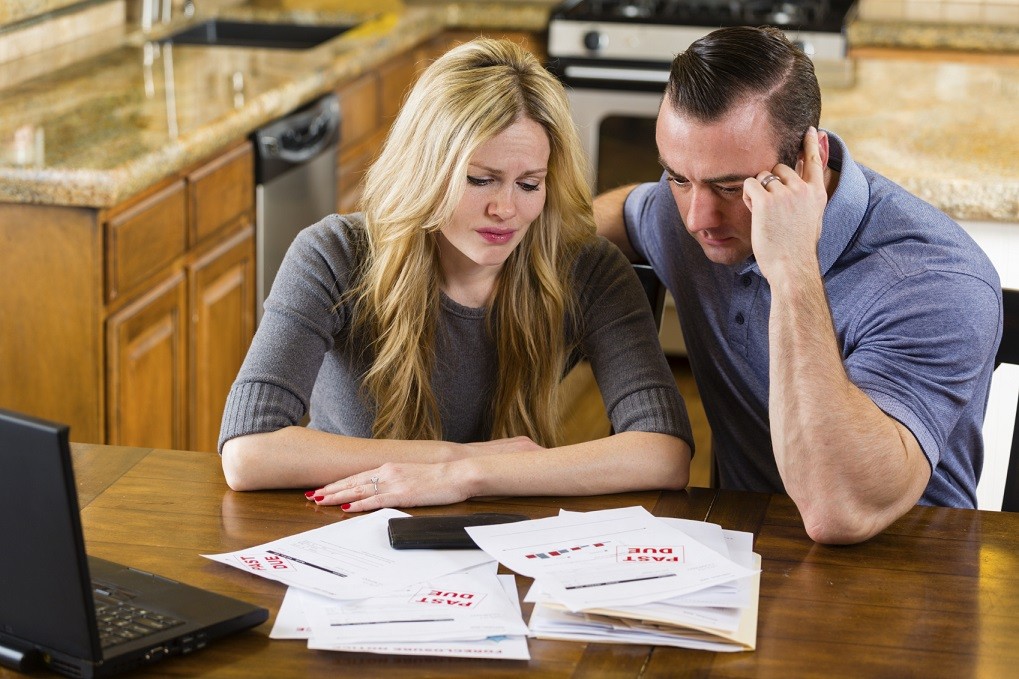If you need to stop foreclosure on your home, one way to do so is to file for bankruptcy. If you’re at the point of not being able to keep up with your mortgage payments, then bankruptcy may be advisable anyway.
The question you have to ask yourself is what kind of bankruptcy to file in order to stop foreclosure. Both types of personal bankruptcy, Chapter 7 and Chapter 13, work differently when it comes to foreclosure. Our goal with this article is to help you decide which type will work best for you. For more information, contact Lorraine M. Greenberg & Associates for a free consultation.

How Does the Foreclosure Process Work?
The foreclosure process is constrained by state law, but usually begins after you fall behind on your mortgage by three or four payments. In Illinois, the courts handle foreclosures, so the lender will file a lawsuit against you for the mortgage balance. After obtaining a judgment, they can take the home as their property. They’ll then sell the home and apply the proceeds toward your mortgage. If the proceeds exceed the mortgage, your mortgage is paid off; if not, you still owe a “deficiency balance.”
In the meantime, you can try to arrange an alternate method to end the foreclosure, such as a deed in lieu of foreclosure (where you give the house to the lender) or short sale. You still lose your home in the end, however, and will still owe part of the mortgage with a short sale. Bankruptcy is meant as a final option.
The Automatic Stay Can Help You Stop Foreclosure
Whenever you file for bankruptcy, the court issues an injunction called “an automatic stay” ordering your creditors to cease all collection activities right away. This gives you a little breathing room, especially if the lender has already scheduled your home for auction. It won’t entirely stop foreclosure, though. You may have as much as 3-4 months before the stay lifts, but you may not if the lender files for a motion to lift the automatic stay. It will still take about two months for the “motion to lift” to process, possibly longer.
Chapter 7 vs. Chapter 13
In a Chapter 7 bankruptcy, you’ll probably lose your home if the creditor files a motion to lift, which they almost certainly will. That won’t give you enough time to scrape up the funds to save your home if you’ve been forced into bankruptcy. The good news for Illinois homeowners is that if there’s a deficiency judgment after the lender sells your home, you’ll probably have it discharged as part of your Chapter 7 bankruptcy.
Chapter 13 offers a way that you can truly stop foreclosure and keep your home. With the court’s help, you can set up a structured payment plan for your debts so that you can catch up on your mortgage payments.
Benefits of a Chapter 13
Here’s how Chapter 13 can help: You arrange to pay your “arrearage,” which is the total of your late payments, over a repayment period of 3-5 years. This can be a lifesaver, assuming you can afford to pay your current mortgage payments and the arrearage payment. If you can, foreclosure stops and you keep your home.
If you’ve taken out second or third mortgages on your home, you may be able to take advantage of something called “lien stripping.” This is possible if you are “upside down,” meaning your mortgage exceeds your home value. Lien stripping recategorizes your subsequent mortgages as unsecured debt, which is the last priority for payoff under Chapter 13. You may not have to pay back those mortgages at all.
If, on the other hand, the value of your home has gone up, then you may end up with non-exempt equity. Lien stripping may not be possible, and you’ll have to add the non-exempt equity to your repayment plan. However, you may be able to avoid this by filing for a homestead exemption, which is $15,000 for an individual and $30,000 for multiple owners.
A Chicago Bankruptcy Attorney Can Help You Stop Foreclosure
Do you feel you have no choice but to file bankruptcy to stop home foreclosure? Call Lorraine M. Greenberg & Associates for a free consultation. When your back’s up against the wall, we can go to bat for you to stop foreclosure on your home.


